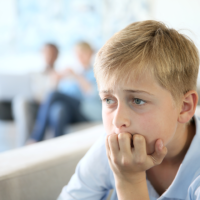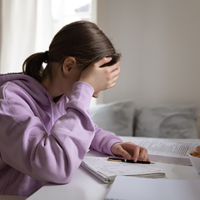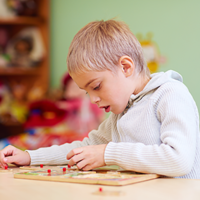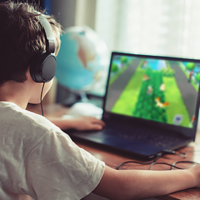Anxiety disorders
-

Yes, young people are concerned about climate change. But it can drive them to take action
In this blog post, Emma Sciberras and Julian Fernando discuses eco-anxiety, the impact of climate change on CYP mental health, and their 2022 CAMH Special Issue paper. This blog was published on The Conversation.com on Wednesday 10 November 2021.
Read more -

EEG data might help identify children at risk for social anxiety
Electroencephalography (EEG) is a non-invasive method to monitor the electrical activity of the brain. There are five main broad frequency bands in the EEG power spectrum: alpha, beta, gamma, delta and theta. Data suggest that EEG-derived delta–beta coupling — indicating related activity in the delta and beta frequency bands — might serve as a marker of emotion regulation.
Read more -

Dr. Michael Bloch
Michael H. Bloch, M.D., M.S. graduated from Yale School of Medicine and completed his child and adult psychiatry training at Yale. He is currently an Associate Professor at the Yale Child Study Center. His research focuses on evidence-based medicine and developing improved treatments for individuals with mental illness across the lifespan using clinical trials and meta-analysis
Read more -

‘Cool Little Kids’ helps reduce later anxiety symptoms but not broader internalising problems
Children with a shy/inhibited temperament are at risk of developing internalising problems later in life.1 Unfortunately, the responses to such behaviours by some parents — such as overprotective or harsh parenting — can add to this risk.
Read more -

January 2021 – The Bridge
This issue of The Bridge features summaries of recent child and adolescent mental health research. I hope you enjoy reading about this excellent work which improves our understanding of a wide range of conditions and informs mental health care for young people.
Read more -

Which disorders precede the development of mood disorders in young people?
Mood disorders such as bipolar disorder (BPD) and major depressive disorder (MDD) typically emerge in childhood or adolescence. Now, researchers in Switzerland, the USA and Canada have investigated whether certain other mental health disorders precede the onset of mood disorders
Read more -

Cognitive inflexibility contributes to both externalising and internalising difficulties in ASD
Children with autism spectrum disorder (ASD) commonly experience internalising and externalising symptoms, but the underlying cognitive mechanisms are unclear. In their latest study published in the Journal of Child Psychology and Psychiatry, Ann Ozsivadjian and colleagues examined the role of three cognitive factors that might contribute to these difficulties.
Read more -

Do children with social anxiety disorder benefit from social skills training?
Social anxiety disorder (SAD) in children can be difficult to treat, as evidenced by the varied outcomes reported post-treatment.1,2 Although childhood treatments for SAD commonly involve at least some social skills training,3 it isn’t clear whether children with SAD have particular difficulties with social skills. There is therefore a need to better establish whether social skills are an effective target for treating SAD.
Read more -

Consistency is needed when measuring and reporting outcomes in child and adolescent anxiety disorders trials
This year, Cathy Creswell, Maaike Nauta and colleagues from around the world convened a series of international activities based around measuring and reporting in treatment trials for child and adolescent anxiety disorders.
Read more -

Does an internet gaming disorder prospectively predict psychiatric symptoms?
A minority of children and adolescents develop addiction-like engagement in gaming that is associated with impaired function.1 Preliminary data suggest that affected children with these symptoms, indicating an Internet Gaming Disorder (IGD), might present with more symptoms of common psychiatric disorders than those without an IGD.
Read more